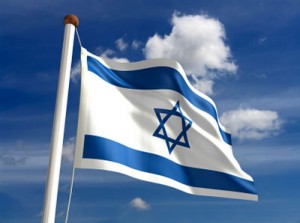 The killing of a senior commander of Iran’s elite Islamic Revolution Guards Corps (IRGC) in Syria on Tuesday appears to have opened yet another chapter in the covert war between Iran and Israel.
The killing of a senior commander of Iran’s elite Islamic Revolution Guards Corps (IRGC) in Syria on Tuesday appears to have opened yet another chapter in the covert war between Iran and Israel.
Prominent politicians and clerics arrived in large number for the funeral of Hassan Shateri on Friday at a mosque in Tehran on Thursday.
Iran maintains that the General, a military engineer, had been deeply involved in reconstruction projects in war ravaged areas that were of abiding interest to Tehran. Gen. Shateri cut his teeth in conflict duty during the Iran-Iraq war in the eighties and subsequently worked in Afghanistan.
The Lebanese newspaper, Al Safir is reporting that the IRGC commander was in Syria to work out plans for the reconstruction of Aleppo — a city ravaged by the savage combat that has raged between the Syrian armed opposition and forces loyal to President Bashar Al Assad. The General, who was the head of the Iranian Committee for Reconstruction of Lebanon, was apparently on his way from Syria to Lebanon when he was attacked.
Iran’s Foreign Minister Ali Akbar Salehi slammed the killing as a “terrorist act,” and Iran’s Fars News Agency said “backers of the Zionist regime”, the signature reference of Israel, had killed him. The IRGC spokesman Ramazan Sharif squarely blamed “mercenaries and supporters" of Israel for it.
Analysts say the assassination could be part of an extended covert war in which Iran and Israel have been engaged.
It includes the cyber- attack by the Stuxnet virus that targeted computers in Iran’s nuclear facilities in Bushehr and Natanz — the site for uranium enrichment. Israel has also been blamed for a string of assassinations of Iranian nuclear scientists.
Iran, in turn has been the most active supporter of the Lebanese Hizbollah — Israel’s arch-foe. It is also widely believed that the Palestinian Hamas is the chief beneficiary of Iranian weapons, which were used with telling effect during the war in November between the Palestinian factions in Gaza and Israel.
The circumstances of Gen. Shateri’s assassination are still unclear, but the killing echoed powerfully in Lebanon. Iran’s Ambassador to Lebanon Ghazanfar Roknabadi attributed the killing to the role that the General played in “Lebanon’s reconstruction following the Israeli aggression against the country in July 2006”.
By The Hindu
The Iran Project is not responsible for the content of quoted articles.

 QR code
QR code